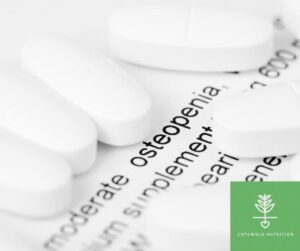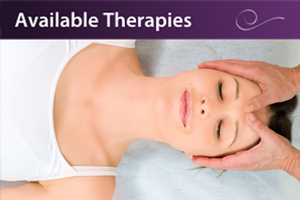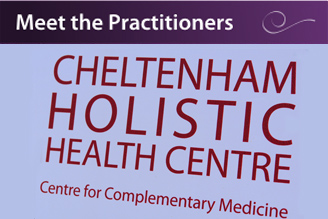Osteoporosis is a condition where your bones become more porous, and as a result they fracture and break more easily. We may associate it with those in very old age but shockingly, 1 in 3 of women over 50 can end up with Osteopenia, which is the forerunner to Osteoporosis.
Bone is not static but grows all the time, forever remodelling itself. Menopause causes oestrogen levels to drop, and as one of this hormones’ crucial roles is to protect our bone growth – this presents another complication for women to deal with. Add to this that bone growth is negatively affected by vitamin and mineral deficiencies, eating disorders and yoyo dieting, thyroid issues, liver disease, and being too skinny – to name just a few conditions – and you’ll realise that there are more reasons than you think to worry about your bone health.
Calcium is the one mineral that everyone thinks about when it comes to good strong bones. These days being dairy free is very definitely in. The shelves are filled with plant substitutes – almond, rice, oat, coconut, soy – even pea milk! But is giving up dairy good for us, or does it mean that we should be taking a bit more time to assess our mineral intake and make sure that we’re not lacking?
Generally, these plant products are all fortified with calcium. As an adult woman, you should be aiming for about 1200mg of calcium each day. A glass of plant milk would generally provide one third of your intake. Add to this a 150g portion of yoghurt (unsweetened of course), a couple of large cups of dark leafy greens, a handful of almonds, a good portion of pulses and an orange, and you’re pretty much there.
But calcium does not work alone. Keeping up your Vitamin D levels becomes especially important at this time of year, particularly when we have had pretty cool summer. Vitamin D helps your body to lay down bone, and as there is very little vitamin D in food, then this is the one vitamin that it is worth supplementing throughout the winter months. Check out City Assays for a cheap and easy test that will give you peace of mind about your current vitamin D levels.
Magnesium is the other wonder mineral that is important to bone health. It converts vitamin D into its active form and helps us to preserve our bone structure. Remember how big grandma became little grandma? Well a good daily intake of leafy greens, such as broccoli, kale, cabbage, spinach, plus some nuts & seeds, which are all jammed packed with magnesium, and can help to protect against the loss of bone space in the spine. Are you getting your greens every day?
We don’t tend to hear much about the Vitamin K’s but they too are essential to make sure calcium is absorbed and laid down as bone. When you are eating your greens then you are also getting some good vitamin K1 too. Foods rich in vitamin K1 include cooked such as kale, spinach, collard greens, Swiss chard, parsley, broccoli and Brussels sprouts.
Vitamin K2 is the type of Vitamin K that has a more significant role in bone health. Good sources of vitamin K2 include beef liver, chicken meat, cheese and natto (fermented soybeans).
Vitamin C is the phenomenal anti oxidant that all menopausal women need in their life. It’s required for the synthesis of collagen which is not only is crucial to aging well and wrinkling less, but it’s also part of the connective tissue and bone. Think daily citrus fruits, red peppers, peas, berries, broccoli and sprouts.
There are other triggers which can lead to our bones becoming more fragile; smoking, stress, dieting, steroids, SSRI’s (anti depressants) and lack of exercise can all play a part. How many of us have reduced our exercise regime since lockdown? Are you working from home and not even getting to walk from the carpark to the office or run for a train? Maybe now is the time to invest in a standing desk, or set an alarm on your phone so that you make yourself stand up every 15 minutes? Or put a yoga mat on the floor next to your desk for some 10 minute breaks – anything to put regular weight through your frame.
Losing height with age and accepting osteopenia shouldn’t be a fact of life. We all need to start working on our core strength and our diet now, because it is all about protecting our bones before it’s too late. If you would like to learn more about how to steer yourself through menopause and beyond, why not book in for a free Better Health chat with Marianne Andrews, our resident nutritional therapist who specialises in menopausal health.









